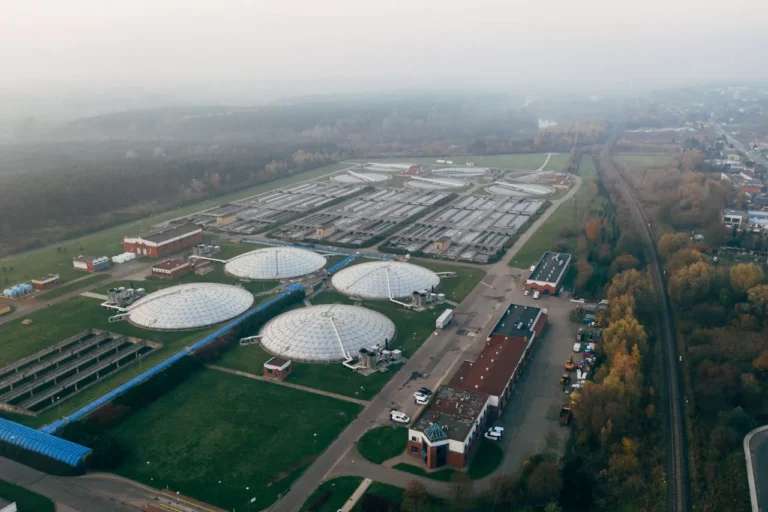
Life Sciences Firms Turn to AI and Strategic Partnerships to Accelerate Digital Transformation
Life sciences companies are embracing artificial intelligence (AI), automation, and strategic collaborations to drive agility, innovation, and patient-centricity, according to the latest research report by Information Services Group (ISG) a global technology research and advisory firm focused on AI-powered solutions.
The newly released 2025 ISG Provider Lens® Global Life Sciences Digital Services Report highlights how major technological advancements are reshaping critical areas such as clinical trials, patient engagement, regulatory compliance, manufacturing, and pharmacovigilance. At the same time, growing regulatory pressure and the demand for sustainable practices are accelerating the need for more adaptive, intelligent digital ecosystems.
“Digital transformation is changing what it means to be a leading life sciences enterprise,” said Jenn Stein, ISG partner and life sciences industry lead. “Life sciences companies want to move faster, understand unique patient needs, and automate processes to be more responsive. Those that can adapt to the new challenges will thrive.”
AI Redefines Clinical Trials and Patient Engagement
One of the key areas being transformed is clinical development, where AI is enabling faster and more efficient design of trial protocols. The integration of self-learning AI systems helps automate complex workflows, deliver real-time insights, and optimize decision-making in areas such as trial planning, documentation, and patient monitoring.
Wearable devices, telemedicine, and mobile platforms now support decentralized and hybrid clinical trials, offering greater convenience and accessibility for patients. These innovations allow trials to be more seamlessly integrated into patients’ everyday lives, increasing both participation and retention.
“By using real-time data capture and personalized communication channels, life sciences companies are fostering proactive, continuous relationships with patients,” the report states. This shift moves away from episodic engagement toward longitudinal, patient-centric models.
AI and Automation Modernize Regulatory Compliance
The report also finds that pharmacovigilance and regulatory affairs are rapidly evolving through digital transformation. AI-powered surveillance systems now enable continuous monitoring for adverse events and automate safety data submissions. These tools align with regulatory frameworks, forming a robust digital compliance backbone for life sciences firms.
With growing global scrutiny and increasingly complex regulations, companies must ensure fast, accurate responses to regulators. AI facilitates the efficient processing of documentation, audit readiness, and compliance tracking—making it an indispensable component of modern pharmacovigilance infrastructure.
CROs Take Center Stage as Strategic Innovation Partners
Contract research organizations (CROs) are no longer just service vendors; they are becoming vital collaborators in the life sciences ecosystem. ISG notes that CROs are taking on expanded roles across clinical development, patient engagement, regulatory affairs, and compliance—often spearheading innovation initiatives involving AI and data analytics.
“Life sciences companies depend on CROs more than ever, especially for engaging with participants in decentralized trials,” said Rohan Sinha, ISG principal analyst and co-author of the report. “Strategic partnerships are essential in this increasingly complex industry.”
This evolution from transactional outsourcing to value-based partnerships allows life sciences firms to leverage the specialized capabilities of CROs, gain scalability, and reduce time-to-market for novel therapies.
GenAI Enhances Personalization in Customer Experience
Another emerging trend is the use of generative AI (GenAI) to support highly personalized customer and patient experiences. GenAI technologies are helping life sciences firms deliver tailored content, automate digital communication, and create adaptive user experiences across touchpoints.
This level of personalization is not only improving engagement with healthcare professionals (HCPs) and patients but also supporting better treatment adherence and long-term outcomes. As AI matures, GenAI is expected to play a larger role in transforming the life sciences customer journey into a more individualized, meaningful experience.
Manufacturing Goes Digital with Automation and Sustainability
The life sciences manufacturing sector is also undergoing a transformation. According to the ISG report, companies are incorporating intelligent automation and sustainable practices into production and supply chain processes. From smart factories to AI-enabled forecasting and inventory management, digital tools are helping streamline operations while meeting environmental, social, and governance (ESG) goals.
Sustainability is no longer optional—it’s a priority. Companies are integrating green technology, circular supply chains, and waste reduction systems into their digital strategies, ensuring compliance with new regulations while demonstrating social responsibility.
ISG Names Top Providers Leading the Digital Charge
As part of its research, ISG assessed 62 digital service providers across seven key quadrants related to life sciences, including:
- Clinical Development (Service Providers and CROs)
- Patient Engagement (Service Providers and CROs)
- Manufacturing Supply Chain
- Pharmacovigilance and Regulatory Affairs — Digital Evolution (Service Providers and CROs)
- Commercial Operations — Digital Evolution
Based on its analysis, ISG named the following as Leaders in five quadrants each:
- Accenture
- Capgemini
- Cognizant
- Deloitte
- HCLTech
- Infosys
- TCS
- Wipro
Other notable Leaders include:
- ICON plc, IQVIA, and PPD in three quadrants each
- Hexaware, NTT DATA, Parexel, Syneos Health, and Tech Mahindra in two quadrants each
- Genpact, Indegene, LTIMindtree, and WuXi AppTec in one quadrant each
Tech Mahindra was also recognized as a Rising Star in two quadrants, highlighting its “promising portfolio” and “high future potential,” according to ISG’s evaluation.
In the customer experience category, Persistent Systems earned the distinction of ISG CX Star Performer for 2025, achieving the highest satisfaction scores in ISG’s Voice of the Customer survey, a core component of the ISG Star of Excellence™ program—the industry’s premier recognition for service excellence.
Customized versions of the report are available from Hexaware, Indegene and PPD.
The 2025 ISG Provider Lens® global Life Sciences Digital Services report is available to subscribers or for one-time purchase on this webpage.
About ISG Provider Lens® Research
The ISG Provider Lens® Quadrant research series is the only service provider evaluation of its kind to combine empirical, data-driven research and market analysis with the real-world experience and observations of ISG’s global advisory team. Enterprises will find a wealth of detailed data and market analysis to help guide their selection of appropriate sourcing partners, while ISG advisors use the reports to validate their own market knowledge and make recommendations to ISG’s enterprise clients.
The research currently covers providers offering their services globally, across Europe, as well as in the U.S., Canada, Mexico, Brazil, the U.K., France, Benelux, Germany, Switzerland, the Nordics, Australia and Singapore/Malaysia, with additional markets to be added in the future. For more information about ISG Provider Lens research, please visit this webpage.
About ISG
ISG (Nasdaq: III) is a global AI-centered technology research and advisory firm. A trusted partner to more than 900 clients, including 75 of the world’s top 100 enterprises, ISG is a long-time leader in technology and business services that is now at the forefront of leveraging AI to help organizations achieve operational excellence and faster growth. The firm, founded in 2006, is known for its proprietary market data, in-depth knowledge of provider ecosystems, and the expertise of its 1,600 professionals worldwide working together to help clients maximize the value of their technology investments.







